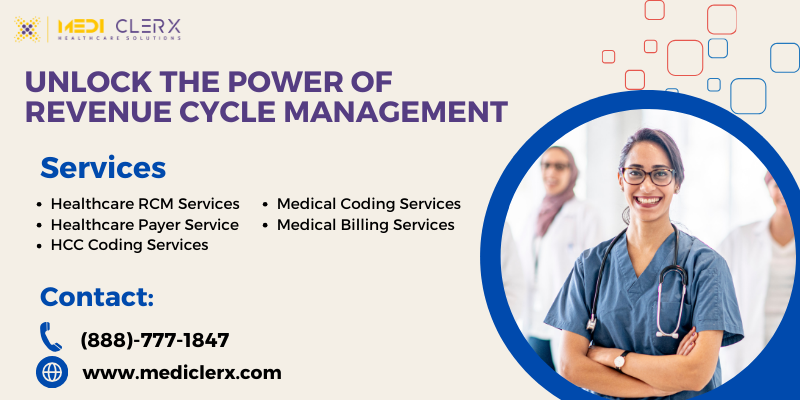In the ever-evolving landscape of healthcare, managing revenue cycles efficiently is essential for the financial health and sustainability of healthcare providers. Revenue Cycle Management (RCM) services play a pivotal role in streamlining the complex processes involved in billing, coding, claims processing, and payment collection within the healthcare industry. Let’s delve into the significance and role of Healthcare RCM Services in optimizing revenue cycles.

1. Efficient Claims Processing: Healthcare RCM services facilitate timely and accurate claims processing, ensuring that healthcare providers receive reimbursement for the services rendered to patients. RCM professionals meticulously review medical records, code diagnoses and procedures accurately, and submit claims to insurance companies promptly. By streamlining the claims processing workflow, RCM services minimize claim denials, reduce revenue leakage, and expedite the revenue cycle.
2. Revenue Maximization: Effective RCM Services Healthcare focus on maximizing revenue for healthcare providers by identifying opportunities to optimize billing practices and revenue streams. RCM specialists analyze payer contracts, fee schedules, and reimbursement rates to ensure that providers are reimbursed accurately and fairly for their services. Additionally, RCM services help identify underpayments, resolve billing discrepancies, and implement strategies to boost revenue generation.
3. Compliance and Regulation Adherence: Healthcare RCM services are equipped with in-depth knowledge of healthcare regulations, coding guidelines, and compliance requirements, ensuring that billing practices adhere to industry standards and regulatory mandates. RCM professionals stay abreast of changes in healthcare policies, coding updates, and billing regulations to mitigate compliance risks and minimize the likelihood of audit penalties or fines.
4. Patient Financial Experience Enhancement: RCM services contribute to enhancing the patient financial experience by providing transparent billing practices, facilitating easy payment options, and offering financial counseling services. By educating patients about their financial responsibilities, RCM services promote price transparency, empower patients to make informed healthcare decisions, and foster trust between patients and providers.
5. Data Analytics and Performance Metrics: Advanced Medical RCM Services leverage data analytics and performance metrics to monitor key revenue cycle indicators, identify trends, and pinpoint areas for improvement. RCM analytics provide valuable insights into revenue trends, claim submission patterns, denial rates, and reimbursement patterns, enabling providers to make data-driven decisions to optimize revenue cycle performance.
You Can Also Visit us : –
In Conclusion: Healthcare RCM services play a vital role in streamlining revenue cycles, optimizing financial performance, and ensuring compliance within the healthcare industry. By facilitating efficient claims processing, maximizing revenue opportunities, adhering to regulatory requirements, enhancing the patient financial experience, and leveraging data analytics, RCM services empower healthcare providers to achieve financial stability, operational efficiency, and improved patient outcomes. As healthcare continues to evolve, RCM services remain indispensable in navigating the complexities of revenue cycle management and driving financial success for healthcare organizations.
